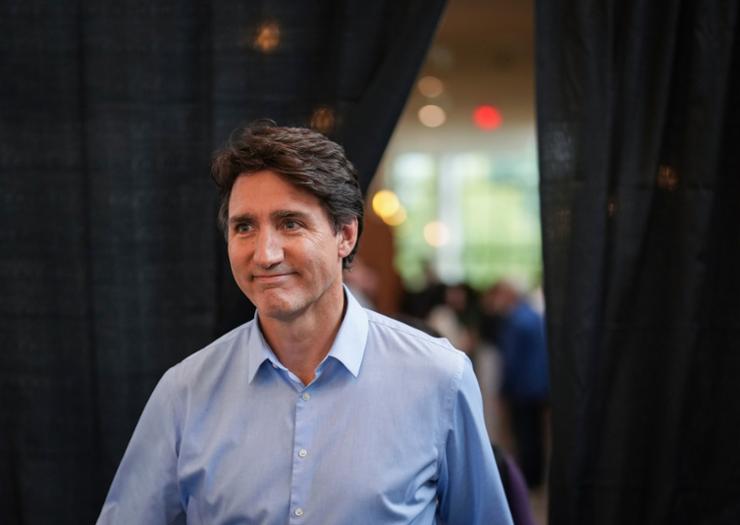WNAM REPORT: Justin Trudeau may survive as Canada’s prime minister into next year, political analysts say, even though his minority Liberal government is more vulnerable after a small left-wing party withdrew a pledge to support it on key votes.
Trudeau, facing voter fatigue after almost nine years in power, was weakened last week when the New Democratic Party ended a 2022 deal in which it agreed to back him in return for more social spending.
The change of heart means the 52-year-old prime minister can no longer be sure of surviving confidence votes in the elected House of Commons chamber, where the Liberals only hold 154 of the 338 seats.
If 170 opposition legislators vote against the Liberals, the government would fall before its term expires at the end of October 2025, forcing an early general election.
In that scenario, polls strongly suggest the right-of-center Conservatives, led by Pierre Poilievre, would win a majority.
Trudeau appears safe at least for about a couple of months. The next confidence vote the government must face is when it asks the House to ratify the so-called budget update, due in late November or December.
When such a vote takes place, the NDP will have the option of voting with the Liberals. NDP leader Jagmeet Singh last week said his party would decide on such votes on a case-by-case basis.
Crucially, there is doubt over whether the NDP wants to pull down Trudeau, since polls suggest the Conservatives, who have blamed the government for rising prices and a housing crisis, could squeeze the number of seats the small party might win in an early election.
“There’s a lot of expectation here that the NDP is actually planning on making the government fall, and I have yet to see evidence for that,” said Philippe Lagasse, a professor and constitutional expert at Ottawa’s Carleton University.
Singh ended his automatic support for Trudeau after months of private complaints that voters were not giving the NDP credit for the government’s increased social spending.
But Nik Nanos, head of Nanos Research, said the NDP had little interest in bringing down the Liberals soon, since Singh needs time to carve out an identity separate from Trudeau’s after supporting him for so long.
“It would be difficult to reconcile propping the Liberals up … one day, and the next, campaigning against them,” Nanos said.
Winter election
Parliamentary rules dictate that the three opposition parties have a total of seven chances between Sept. 16 and Dec. 10 to present whatever motions they wish. The Conservatives, the largest opposition party, would most likely have three of those opportunities to bring Trudeau down.
But the timing of opposition motions is in the hands of Liberal House leader Karina Gould, who could bunch them at the very end of the session in December.
A Liberal defeat in such a motion would mean a winter election, something that tends to be unpopular with voters. The results could prove more difficult to predict, giving the NDP pause in any push to bring the government down.
Gould’s office did not respond to requests for comment.
NDP legislators could abstain on key votes. Former Liberal leader Michael Ignatieff used that tactic when in opposition in 2010 to avoid bringing down a minority Conservative government.
That said, Singh’s case-by-case strategy has its limits, said Karl Belanger, a former top NDP official.
“The NDP cannot afford to vote for the Liberals in confidence vote after confidence vote without getting anything in return,” he said.
As an alternative, Trudeau could turn to the separatist Bloc Quebecois, the third-largest party in the House. It tilts left of center, like the Liberals, but seeks to take Quebec out of the Canadian confederation. Working with the separatists could prove to be politically toxic for the Liberals.
If Trudeau manages to hold power into 2025, a vote on the federal budget, usually in March or early April, is the next danger point. At that time, he might decide to take the country to the polls, although a senior Trudeau aide said the prime minister had no plans to trigger an early election.
As well as external threats, Trudeau faces unhappiness inside his own party over the poor poll numbers. Even so, he insists he will not step down as Liberal leader and prime minister.
Trudeau and the rest of his Liberal caucus gathered in British Columbia this week to plot strategy. As it started, the Liberals announced that former Bank of Canada Governor Mark Carney, often mentioned as a potential replacement, would chair a task force reporting to the prime minister on economic growth.
Liberal grumbling — and speculation about Carney — picked up after the party lost a safe seat to the Conservatives in a special election in June. Trudeau aides concede the pressure for him to quit could grow if the party loses another special election, this time in a Montreal stronghold, on Sept. 16.








